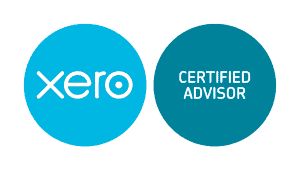5 Real-Life Lessons About Charity Independent Examinations For Charity Trustees
Introduction
When a charity requires an independent examination, the examiner will review the books and records and will compare them to the accounts.
The examiner will also review the accounts and will identify any unusual items and consider any necessary disclosures.
The outcome of the independent examination is a report from the examiner to the trustees.
The examiner will report on whether or not they have reasonable cause to believe that proper accounting records weren’t kept, the accounts didn’t agree with the accounting records, and in some cases, whether the accounts haven’t been prepared in line with recommended practice.
If the examiner identifies any other significant concerns, they must include them in the report to the trustees.
For example, they may state that there is a material expenditure that is not consistent with the terms of the charity’s governing documents.
A qualified accountant will take a very structured and systematic approach to the independent exam.
More often than not things will run very smoothly.
However, there a 5 key real-life lessons that every charity trustee should know.
These lessons will help make sure their independent examination completes as quickly and easily as possible.
1) Not Agreeing on a Timetable for the Examination
Right now you may have an Independent Examination coming up for your Charity.
But you have no idea what the process may be or how long it will take.
The problem is that you don’t know whether you will be able to get everything done in time to meet the filing deadlines.
This can have an impact on the reputation of the Charity if the deadlines are not met.
But also on the personal lives of the Charity Trustees and staff.
They may suffer sleepless nights, stress, and anxiety worrying about what might happen.
However, by planning ahead and setting a clear timetable for the whole Independent Examination Process, you can eliminate these worries and meet the deadlines set by the Charity Commission.
Tip 1 – How to Plan a Timetable for your Charity’s Independent Examination
Agree on a timetable with the Independent Examiner well in advance of your filing deadline
Charity accounts and trustees ‘reports must be filed with the Charity Commission within 10 months of the Charity’s year-end.
Company Charities must also file their accounts with Companies House on a slightly earlier deadline of within 9 months of the Charity’s year-end.
The key dates and milestones to agree on for the timetable include:
· When the trustees will provide draft accounts and accounting records to the independent examiner
· When the independent examination will start and when it will end
· When the final accounts review will take place between the trustees and the independent examiner
· When the final accounts sign-off will take place
· When the signed accounts and trustees report will be submitted to the Charity Commission and if the Charity is a company to Companies House
2) Not Preparing a Trustees Report in Time and In the Wrong Format
A charity’s trustees are responsible for preparing the trustees’ annual report in the right format and in line with the results in their accounts for the year.
Sometimes this can be overlooked or left to the last minute.
This can cause delays to the finalisation of the accounts as the independent examiner must have sight of it to complete their work.
If the trustees’ report isn’t prepared in good time, accounts may be filed late.
This can tarnish the reputation of the charity and cause unnecessary stress and embarrassment for the trustees.
Tip 2 – Prepare the Trustees Report Well In Advance and Don’t be Afraid Ask Your Qualified Accountant for Help if you Need It
Agree on arrangements for preparing the trustees’ report well in advance.
If you need a little extra help ask your qualified accountants.
Your accountant can advise on the format and content of the report to make sure it is prepared right-first-time.
3) Not Having the Accounting Books and Records Ready and Up to Date
It can be hard for charity trustees to govern a charity and decide on how it’s run. Being a trustee means making decisions that will impact on people’s lives.
Sometimes this can lead to less pressing activities such as the charity’s books falling behind.
If the charity’s books and records have not been kept up to date by the time the independent examination begins then this can lead to delays, disruptions, and extra work for everyone involved.
Delays and disruptions can lead to the stress and anxiety of late submissions and extra work.
This means extra costs and worries for the trustees of the charity.
By keeping your accounting books and records up to date on a regular systematic basis you can navigate your charity around these problems.
Tip 3 – Keep Your Accounting Books and Records Up to Date on a Regular Basis
The charity trustees must ensure that the accounting records provide the basic information from which accounts can be prepared.
These records should contain details of all money received and payments made and of the charity’s assets and liabilities at the end of the financial year.
Other records that will be needed for the independent examination include the charity’s governing document and the minutes of the trustee meetings.
Aim to keep your books and records updated on a regular basis, typically either weekly or even daily.
A good mantra to keep in mind is “Little and Often” which means problems get sorted out in good time and are easier to answer and resolve when they are fresh in everyone’s minds.
If you need help with bringing your books and records up to date, tell your accountant.
Given time a qualified and experienced accountant will be able to help you bring your accounts up to date quickly and easily – ideally using the latest cloud accounting software.
4) Not Arranging for the Trustees and Other Staff to be Available During the Independent Exam
It happens more often than you would think.
The accountant begins their work on the independent examination only to find that key trustees or other staff are on holiday or otherwise tied up with other things.
They are not available to answer questions or provide other essential information.
This creates a problem as the examiner will need to ask the trustees and other staff questions about the charity, the accounts, and the supporting records.
If the trustees aren’t available, then the completion of the independent examination will inevitably stall until they are.
This creates the inconvenience and stress of delays, the possibility of filing late, and extra costs for the charity.
All this can be avoided by making sure key trustees and staff are available and willing to help throughout the independent examination process.
Tip 4 – Plan for Key Trustees and Other Staff to Be Available During the Independent Examination
Before agreeing on the timetable for the Independent Examination with your qualified accountant, check first that key trustees and other staff will be available to help at the required times.
Once the timings have been agreed make sure everyone involved records the dates in the diaries with a reminder to make sure they are available when needed.
5) Not Filing the Accounts and Trustees Report on Time
Once the examiner has completed the independent examination, the trustees must file a copy with the Charity Commission (and any other UK charity regulator, if required), alongside their charity’s trustees’ annual report and accounts within 10 months of the charity’s year-end.
It can happen that the trustees forget to submit the accounts and supporting documents and miss the deadline.
This leads to additional costs, work, and worry for the trustees.
This stressful situation can be avoided by remembering that the job isn’t finished when the independent examiner has issued their signed report.
Tip 5 – Arrange for the Treasurer or Other Charity Trustee to File the Accounts with the Charity Commission as Soon As Possible After Signing
Include the filing of the accounts with the Charity Commission as an action in the Independent Examination timetable.
Remember to assign the responsibility to one key person in the charity and set a deadline for it in the diary to ensure everything gets filed on time.
Conclusion
A charity independent examination is a worthwhile exercise.
It should run very smoothly for both the trustees and the examiner.
By following these 5 key real-life lessons the charity trustee can go a long way to making sure the process is as quick and stress-free as possible.
P.S. Discover how we can help you take care of your independent examination quickly and easily.
Request a FREE Discovery Call today with the form below






